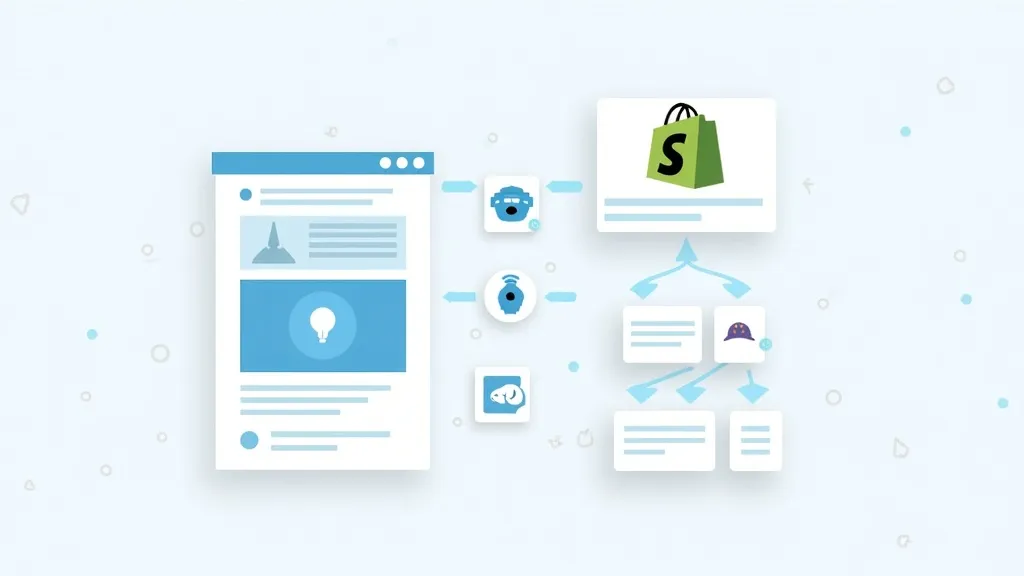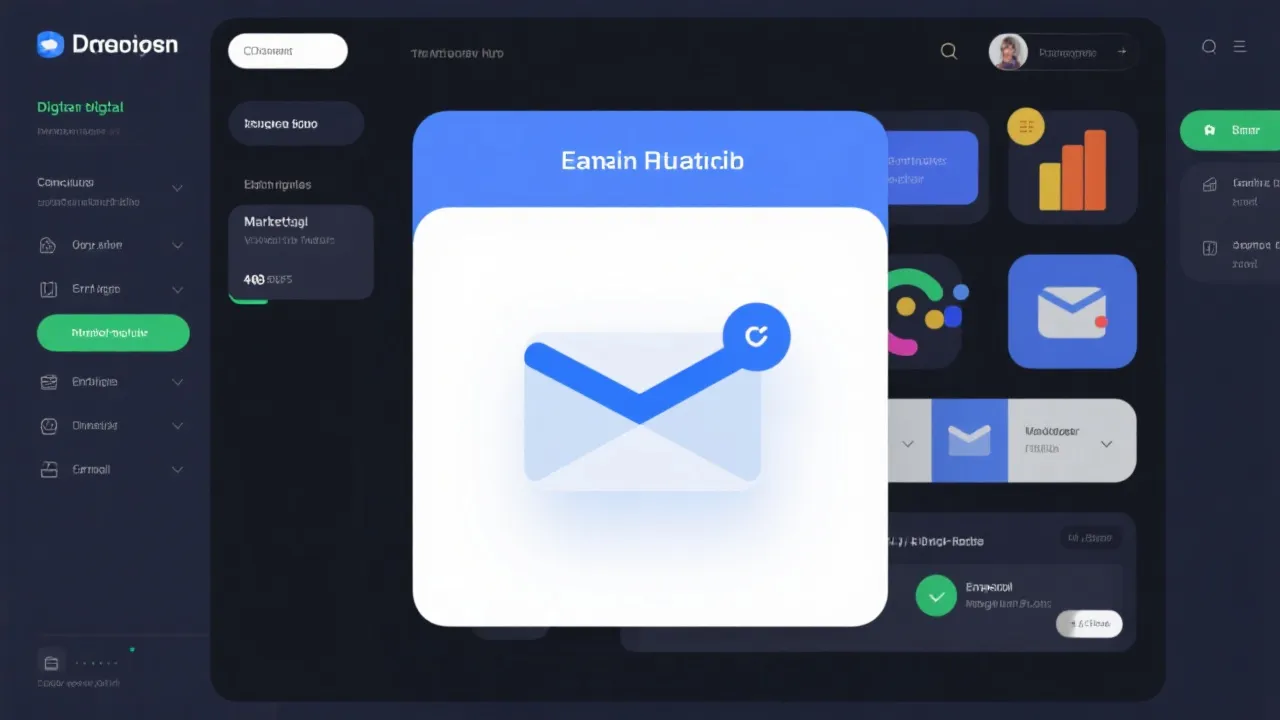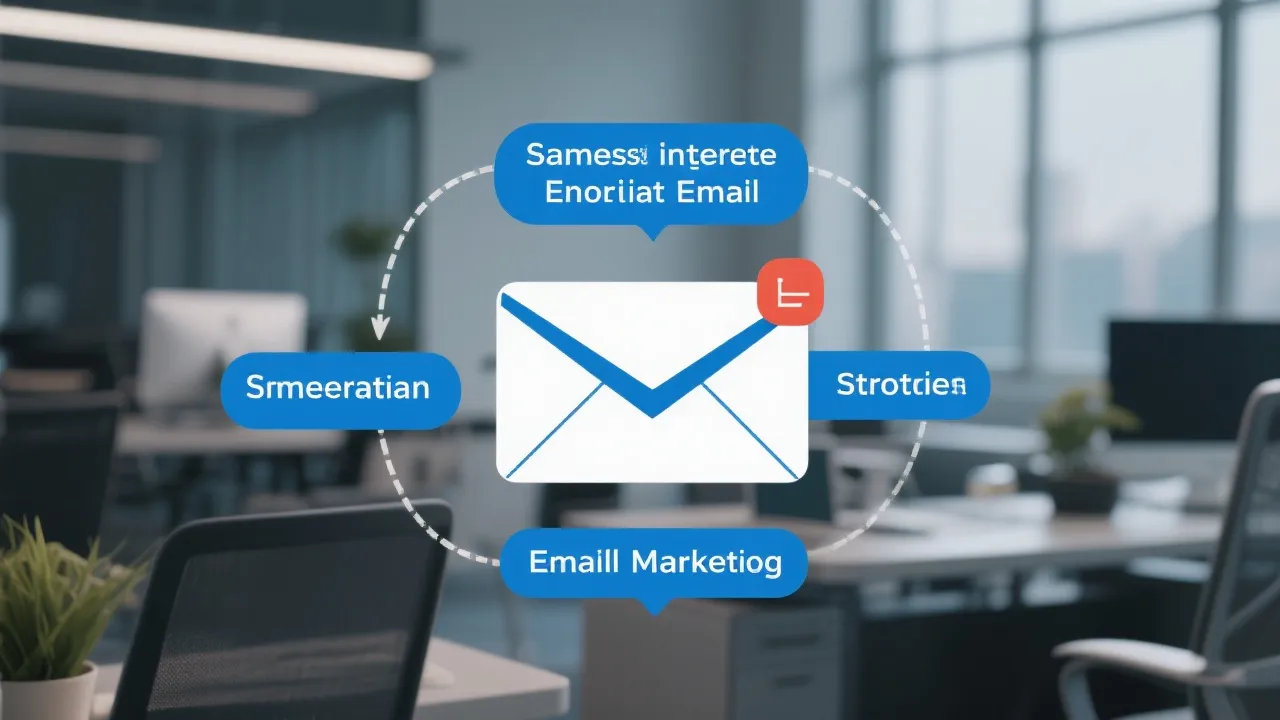Mastering Shopify Marketing Automation
This comprehensive guide delves into Shopify Marketing Automation, a crucial tool for e-commerce businesses seeking to enhance customer engagement and streamline operations. Shopify Marketing Automation offers personalized marketing solutions that drive sales and customer loyalty. Readers will gain insights from an industry expert, exploring automation strategies, benefits, and common pitfalls to avoid.

What is Shopify Marketing Automation?
Shopify Marketing Automation is a suite of sophisticated tools provided by Shopify that enables merchants to streamline and automate their marketing activities. By integrating advanced features like email marketing, customer segmentation, and workflow automation, Shopify empowers businesses to send tailored campaigns to specific customer groups based on a variety of factors, including behavior, purchase history, and individual preferences. By automating these essential tasks, retailers of all sizes can save invaluable time, minimize the risk of manual errors, and significantly enhance their overall marketing effectiveness.
Moreover, the automation functionalities extend beyond just email campaigns, covering a wide array of marketing avenues including social media engagement, customer follow-ups, and even advertisements. This interconnected system allows for a holistic approach to marketing, increasingly becoming a must-have for e-commerce businesses aiming for success. As merchants begin to harness the potential of these automation tools, they can observe a marked improvement in customer interactions and conversions, ultimately driving long-term success.
The Importance of Marketing Automation in E-commerce
In today's digital marketplace, consumers have evolving expectations for personalized experiences. Marketing automation answers this call by enabling businesses to deliver tailored messages precisely when they are most relevant. With Shopify's suite of automation tools, e-commerce stores can nurture leads more efficiently, convert prospects into loyal customers, and consistently engage existing clients, fostering ongoing relationships over time.
Personalization is a critical component of customer satisfaction, and automated marketing allows for dynamic adjustments to marketing strategies that align closely with consumer behavior. This means targeted campaigns can vary based on users' previous interactions, leading to higher engagement rates. In practice, when a potential customer abandons their cart, for instance, an automated follow-up email can be sent, enticing them with a reminder or discount. Such timely and relevant communications can make the difference between one-off buyers and repeat customers.
Furthermore, the analytical facets of marketing automation provide invaluable insights that can inform future campaigns and strategies. By tracking what resonates with audiences—such as specific content types or sending times—businesses can continuously refine their approaches, leading to higher revenue streams and increased ROI. The integration of data analytics into marketing automation is not only empowering but also essential for maintaining a competitive edge in the crowded e-commerce space.
Advantages of Using Shopify Marketing Automation
Implementing Shopify Marketing Automation brings forth numerous advantages that can substantially benefit e-commerce businesses. Some of the key advantages include:
- Personalization: Automation enables the creation of personalized email campaigns based on individual customer behavior, preferences, and engagement history, fostering deeper connections with customers.
- Efficiency: Businesses can save significant time by automating repetitive tasks such as scheduling social media posts, sending follow-up emails, and managing promotional campaigns.
- Scalability: With the automation of marketing processes, businesses can easily scale their efforts without increasing their support staff, allowing for growth while maintaining efficiency.
- Enhanced Customer Experience: Delivering consistent and timely interactions across multiple channels not only strengthens brand identity but also enhances the overall customer experience, leading to increased loyalty.
- Improved Data Management: Automation tools often come integrated with analytics capabilities, allowing businesses to track performance metrics, customer behavior, and campaign effectiveness to make data-driven decisions.
- Cost-effectiveness: By reducing the need for extensive manpower to manage marketing tasks, businesses can allocate resources more effectively, reducing operational costs in the long term.
Steps to Implement Shopify Marketing Automation
Putting Shopify Marketing Automation into practice typically involves several well-defined steps that help ensure successful integration and execution. Here’s a guide to implementing automation:
- Define Marketing Goals and Objectives: Before diving into the tools, it's essential to clarify your marketing goals. Are you looking to increase brand awareness, boost sales, maintain customer loyalty, or all of the above? Defining clear objectives will guide your automation strategies.
- Select Appropriate Automation Tools: Shopify offers a range of built-in features and third-party applications that cater to various needs. Identify and choose the tools that align with your specific marketing goals and business model.
- Segment Your Audience: Use data to create precise customer segments. Grouping customers based on demographics, purchase history, and behavior enables you to tailor messages and strategies specific to each segment.
- Create Engaging Content: Content is key in engaging automation. Develop personalized email sequences, landing pages, and social media posts that pique interest, nurture leads, and drive conversions. Always keep your audience's preferences in mind.
- Monitor Campaign Performance: Once your campaigns are running, continuously monitor their performance. Utilize analytics to track success rates, open rates, clicks, and more, which allows for real-time adjustments and optimization.
- Refine Your Strategies: Based on the performance metrics gathered, refine your marketing strategies. Use test-and-learn methodologies to discover what works best for your audience and continually evolve your approach to retain effectiveness.
Challenges and Solutions in Marketing Automation
While marketing automation presents a plethora of benefits, businesses frequently encounter challenges that can impede their success. Recognizing these obstacles and finding effective solutions is vital for making the most of marketing automation:
- Data Management: One major challenge is ensuring data accuracy and integrity before automation takes place. Poor-quality data can result in ineffective campaigns. It's essential to regularly clean and update your data to avoid errors in segmentation and targeting.
- Over-automation: A common pitfall is the risk of over-automation, which can lead to a soulless and impersonal customer experience. Striking a balance between automated messages and maintaining a human touch is crucial to uphold customer relationships.
- Content Quality: Automation is only as effective as the content itself. High-quality and relevant content that resonates with target audiences should always be prioritized. Regular content audits can help identify what works and what does not.
- Adequate Training: Staff may require adequate training to fully utilize marketing automation tools. Ensuring your team is equipped with the knowledge and skills to operate these tools efficiently can eliminate bottlenecks in the execution processes.
Comparison of Popular Shopify Marketing Automation Tools
| Tool | Features | Usability |
|---|---|---|
| Shopify Email | Built-in email templates, segmentation, and reporting. | Beginner-friendly, integrates seamlessly with Shopify. |
| Klaviyo | Advanced segmentation, SMS marketing, and dynamic content. | Ideal for medium to large-sized businesses needing advanced features. |
| Omnisend | Multi-channel marketing, automation workflows, and analytics. | Valuable for brands focused on integrated marketing across email, SMS, and social media. |
| ActiveCampaign | Email marketing, CRM integration, and robust analytics. | More advanced, best suited for businesses looking for deeper CRM capabilities. |
| EmailOctopus | Simple email marketing, automation workflows, cost-effective plans. | User-friendly interface, ideal for businesses just starting their automation journey. |
FAQs
Q: How can Shopify Marketing Automation improve my sales?
A: By sending personalized recommendations and follow-up emails, businesses can significantly increase conversion rates and drive repeat purchases. Automated retargeting campaigns can also rekindle interest from potential customers who have not completed their purchases.Q: What is the cost of implementing marketing automation on Shopify?
A: Costs can vary widely depending on the selected tool and the scale of implementation but can range from free built-in features to premium plans at various price points. Initial setup can typically be done within a reasonable budget, making it accessible for many small businesses.Q: Is programming knowledge required to use Shopify's marketing automation?
A: No programming skills are necessary. Shopify's tools are designed with user-friendly interfaces and templates that facilitate easy setup and management, even for those with limited technical backgrounds.Q: How do I know which automation tools are best for my business?
A: Determining the best automation tools requires analyzing your specific business needs, target audience preferences, and marketing goals. Many tools offer free trials, allowing you to test their capabilities before committing.Q: Can marketing automation handle social media marketing as well?
A: Absolutely. Many marketing automation tools integrate social media management features, allowing businesses to schedule posts, respond to comments, and track engagement over multiple platforms, all within the same dashboard.
Conclusion
In essence, Shopify Marketing Automation represents a transformative leap for e-commerce businesses eager to refine and optimize their marketing strategies. By effectively leveraging automation tools, merchants can create personalized buying experiences, streamline operational efficiency, and ultimately achieve greater business growth. The ability to segment audiences, generate data-driven insights, and deliver tailored content empowers businesses to engage more meaningfully with customers, thereby enhancing overall satisfaction. As the e-commerce landscape continues to evolve and consumer expectations shift, staying at the forefront of marketing automation is not just a competitive advantage; it has become integral to thriving in a digitally dominated marketplace.
As businesses implement Shopify Marketing Automation, it's crucial to remain agile and responsive to changes in the market and consumer behavior. Regular evaluation and adaptation of marketing strategies based on gathered analytics will ensure that your campaigns resonate with customers effectively. With a solid grasp of marketing automation, merchants will be poised to not only meet but exceed customer expectations, paving the way for sustained success in the realm of e-commerce.










